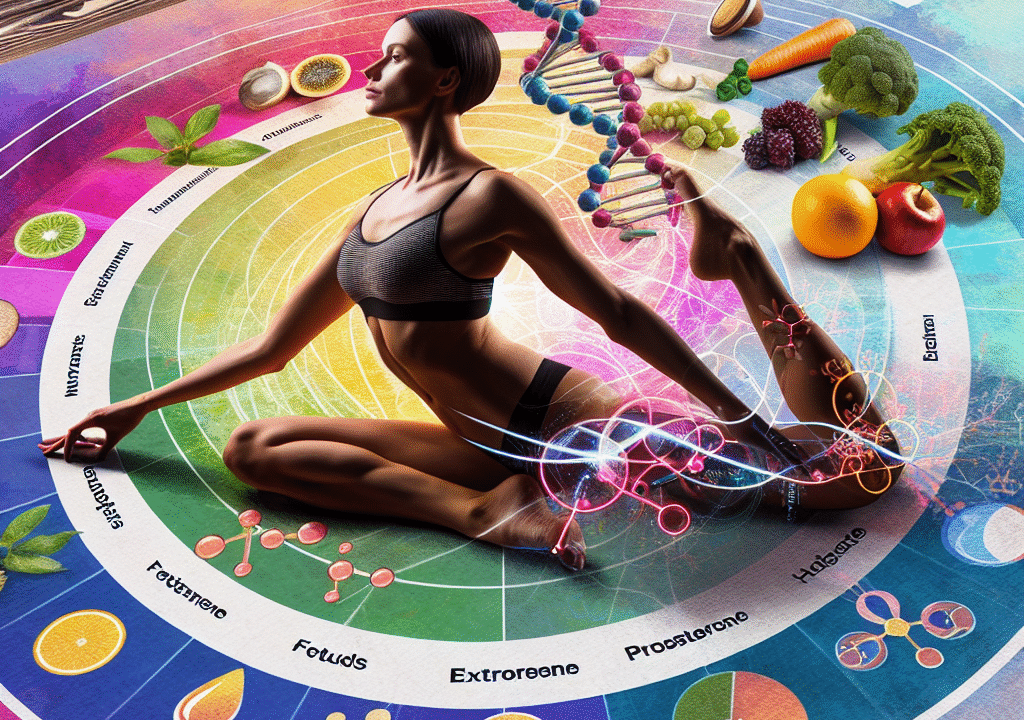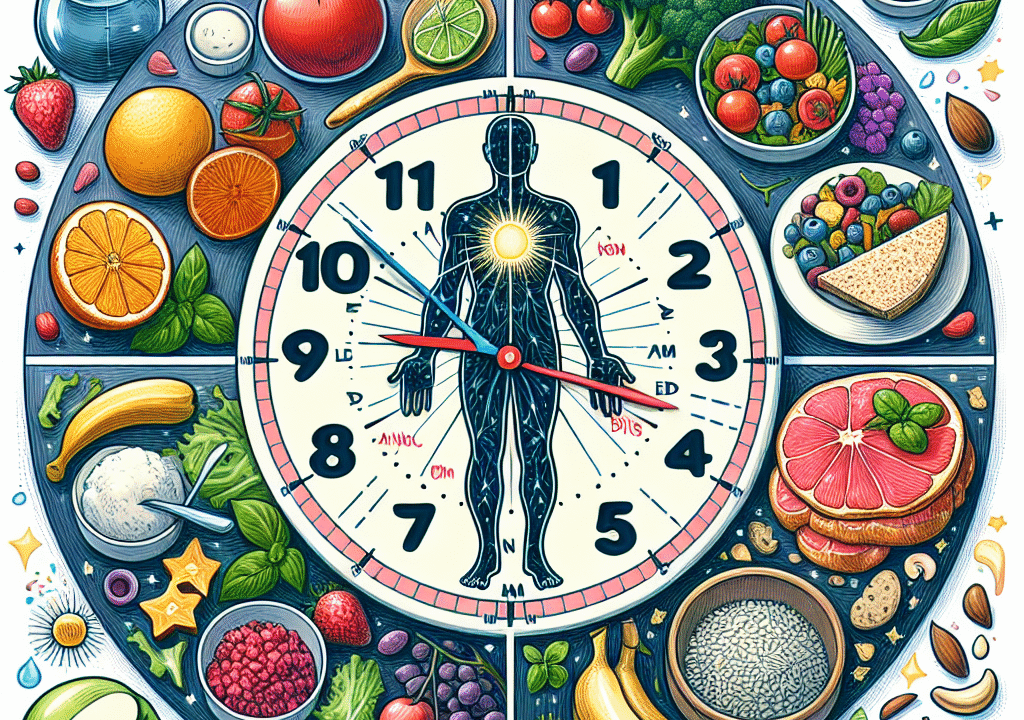The Micronutrient Map: Your Guide to Preventing Nutrient Deficiencies on a Plant-Based Diet
As more individuals embrace plant-based eating for its health and environmental benefits, understanding the nutritional nuances becomes essential. A 2022 Gallup survey revealed that approximately 23% of U.S. adults are consuming less meat than they did the previous year. With this shift, many are adopting vegetarian or vegan diets.
A balanced plant-based diet supports heart health, reduces inflammation, and promotes longevity. However, it must be thoughtfully planned to avoid nutrient shortages. That’s where your personalized Micronutrient Map comes in—a tailored framework designed to help meet your vitamin and mineral requirements through whole foods and strategic supplementation.
Let’s explore how to proactively maintain nutrient balance and thrive on a plant-forward lifestyle.
What Are Micronutrients and Why Do They Matter?
Micronutrients, including vitamins and minerals, are essential in small amounts but have a substantial impact on overall health. They are involved in everything from bone development to cognitive function. However, certain nutrients are more bioavailable in animal-based foods, making them harder to obtain from a purely plant-based diet.
Dr. Reed Mangels, Ph.D., RD, and nutrition advisor to The Vegetarian Resource Group, notes the importance of mindful nutrient intake. “Plant-based eaters must be intentional about getting nutrients like B12 and iron, as they aren’t naturally abundant in most vegan foods,” she explains.
When building plant-based meals, diversity and absorption are key strategies.
Seven Essential Nutrients for Plant-Based Eaters
Here are the seven most crucial nutrients to monitor and prioritize:
Vitamin B12: Vital for Nerve Health and Energy
Vitamin B12 supports DNA production, nerve function, and red blood cell creation. It is naturally found in animal products, making deficiency a concern for vegans and vegetarians.
A lack of B12 can lead to neurological issues, including memory problems and nerve damage.
Sources include fortified plant-based beverages, nutritional yeast, and high-quality B12 supplements.
Iron: Energy and Oxygen Transporter
Iron is essential for carrying oxygen throughout your body. While plant foods provide non-heme iron, it isn’t absorbed as efficiently as the heme iron found in meat.
To enhance absorption, combine iron-rich foods with those high in vitamin C. For example, eating lentils with red bell pepper or citrus fruit can dramatically increase absorption.
Top plant-based sources: lentils, quinoa, spinach, pumpkin seeds, tofu.
Zinc: Immunity and Cellular Repair
Zinc supports immune function, wound healing, and cell growth. However, phytates (found in whole grains and legumes) can limit zinc absorption.
Optimize zinc intake by eating soaked or sprouted legumes and grains.
Good sources: chickpeas, hemp seeds, oats, cashews.
Omega-3 Fatty Acids: Essential for Brain and Heart Health
Plant-based diets are typically rich in ALA, an omega-3 fatty acid found in seeds and nuts. However, the body converts only a small percentage of ALA into DHA and EPA—two critical forms for brain and cardiovascular health.
Best sources for omega-3s include flaxseeds, chia seeds, walnuts, and vegan algae oil supplements.
Ground flaxseed can easily be added to oatmeal, smoothie bowls, or baked goods.
Calcium: Strengthening Bones and Muscles
Without dairy, getting enough calcium requires extra care. Some plant foods contain oxalates or phytates, which inhibit calcium absorption.
Focus on low-oxalate, high-calcium foods such as fortified plant-based milk, tofu made with calcium sulfate, and greens like kale or bok choy.
Example: Create a stir-fry using tofu, bok choy, and sesame seeds to meet your calcium goals.
Vitamin D: Supporting Immunity and Bone Health
Vitamin D aids calcium absorption and plays a key role in immune function. Many people, especially those living in colder climates or spending less time outdoors, may be deficient.
Sources include fortified cereals, UV-exposed mushrooms, and vegan-friendly vitamin D supplements (both D2 and D3).
Iodine: Maintaining Thyroid Function
Iodine is important for thyroid hormone production and metabolism. Plant-based sources vary significantly in content since iodine levels depend on soil quality.
Reliable iodine sources: iodized salt, sea vegetables like nori or kelp, and carefully dosed supplements.
Tip: Using iodized salt in cooking is a simple way to meet daily needs without needing major dietary changes.
Building Your Personalized Micronutrient Map
Creating a personalized Micronutrient Map will help guide you in avoiding deficiencies before they arise.
1. Perform a Weekly Nutrition Audit
Track your meals using apps like Cronometer or MyFitnessPal. This helps highlight trends or gaps in your nutrient intake. Compare your daily values with the Recommended Dietary Allowance (RDA) guidelines.
2. Eat a Colorful Variety of Foods
Diversify your intake with a wide array of whole foods: fruits, vegetables, legumes, whole grains, seeds, and nuts. This improves the chances of meeting your daily nutrient targets.
Example of a balanced day: avocado toast for breakfast, lentil soup for lunch, a mixed berry smoothie snack, and a chickpea stir-fry dinner with whole grains.
3. Supplement Wisely When Needed
Despite a well-planned diet, some nutrients—namely B12, vitamin D, and DHA—often require supplementation. Choose third-party-tested supplements labeled as vegan-friendly.
Dr. Michael Greger, author of How Not to Die, recommends choosing a supplement providing at least 2,500 mcg of vitamin B12 weekly.
4. Be Smart With Food Pairings
Some foods enhance the absorption of others. For example, combining turmeric with black pepper can enhance curcumin absorption significantly.
Strategic pairing boosts nutrient uptake and maximizes the benefit of each meal.
5. Stay Current with Your Health Needs
Your nutritional requirements can change over time due to age, stress, activity level, or medical conditions. Stay proactive by getting regular blood tests and consulting a plant-based dietitian, especially if you’re experiencing symptoms of deficiency.
Proactive Health: Preventing Problems Before They Arise
The key strength of using a Micronutrient Map is its focus on prevention. Instead of reacting to symptoms like fatigue or hair loss, you’ll be taking deliberate steps to support your health long term.
Perfection isn’t the goal. Instead, the emphasis is on awareness, consistent improvements, and self-care.
Conclusion: Thrive on Your Plant-Based Path
Living a vibrant, balanced plant-based life is absolutely achievable. With the right tools and knowledge, you can:
– Avoid the most common nutrient gaps
– Boost your daily energy and mental clarity
– Support lifelong health with confidence
Every meal is an opportunity to nourish your body, honor your values, and feel your best.
Useful Resources
– National Institutes of Health – Office of Dietary Supplements: https://ods.od.nih.gov/
– VeganHealth.org: https://veganhealth.org/
– Academy of Nutrition and Dietetics: https://www.eatright.org/
– Cronometer (Nutrient Tracking App): https://cronometer.com/
– Vegan-Friendly Supplement Retailer: https://www.edrugstore.com
Join the Conversation
Are you following a plant-based diet? What strategies or meal combinations have helped you stay on track? Share your experiences and insights in the comments—we’d love to hear from you!
References
– Mangels, R. “Planning Well-Balanced Vegetarian Diets.” Vegetarian Journal
– Harvard Health Publishing. “Omega-3 Fatty Acids: An Essential Contribution”
– U.S. National Institutes of Health – Office of Dietary Supplements
– Cleveland Clinic. “Vitamin D Deficiency: Symptoms, Causes & Treatment”
– Greger, M. How Not to Die. Flatiron Books
– Cumin et al. (2009). “Black Pepper Enhances Bioavailability of Curcumin.” Planta Medica


